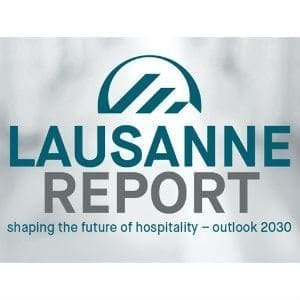 Prospects for hotel investors remain reasonably favorable even if interest rates move upward, based on an analysis of hotel capitalization rates. A new study from the Cornell Center for Hospitality Research establishes the relationship between those cap rates and U.S. Treasury rates. The study, “The Effect of a Rise in Interest Rates on Hotel Capitalization Rates,” by Jack Corgel, is available from the CHR at no charge. Corgel is a professor of real estate at the Cornell School of Hotel Administration.
Prospects for hotel investors remain reasonably favorable even if interest rates move upward, based on an analysis of hotel capitalization rates. A new study from the Cornell Center for Hospitality Research establishes the relationship between those cap rates and U.S. Treasury rates. The study, “The Effect of a Rise in Interest Rates on Hotel Capitalization Rates,” by Jack Corgel, is available from the CHR at no charge. Corgel is a professor of real estate at the Cornell School of Hotel Administration.
While it’s difficult to forecast the exact timing of interest rate changes, it seems likely that rates will soon rise. Capitalization rates for all commercial real estate are affected by changes in the general level of interest rates. In this report Corgel analyzes the relationship of U.S. Treasury rates with hotel capitalization rates.
“My assumption is that hotel cap rates should respond more quickly to interest rate changes than those of other property types because hotels do not experience what’s called ‘lease friction,’ which we see in other commercial properties,” said Corgel. “Using data from the first quarter of 1997 through the first quarter of 2016, my model estimates that a 100-basis-point increase in the 10-year U.S. Treasury rate will produce a 28-basis-point uptick in hotel capitalization rates.”
Although the Federal Reserve is signaling a rate increase, Corgel added that we still do not know the timing and number of interest rate changes. “It seems reasonable to expect any rate increases to be relatively slow,” he said. “As a result, I believe that even as rates begin to change, hotel investors should have ample time to determine whether to exit their investments without fear of losing gains. On the other hand, new investors will need to rely on the strong dividend flows currently being produced by hotels.”















